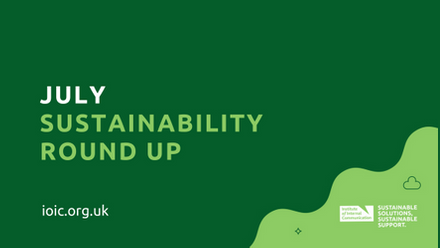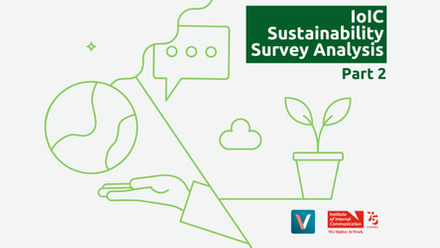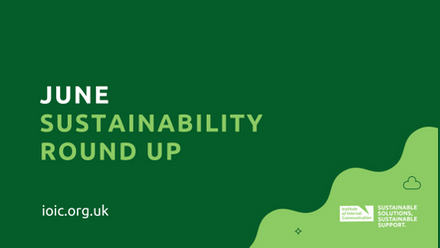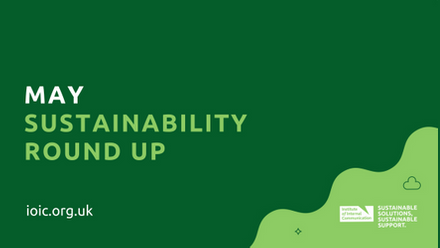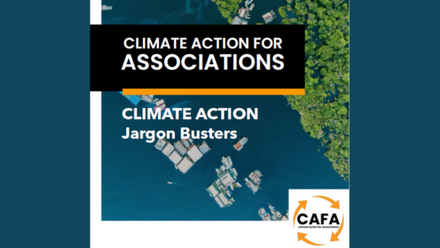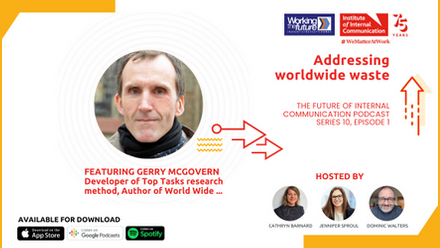Personal sustainability
We were interested to read that Virgin Atlantic has sent the first passenger jet powered by 100% sustainable aviation fuel (SAF) across the Atlantic, on its London-to-New York route.
That’s the first time a commercial airliner has flown long haul on 100% SAF. Which sounds great, of course. But on closer inspection, it’s perhaps mixed news.
Environmental advocacy group Stay Grounded labelled the flight "a greenwashing distraction". And they might just have a point. Compared to road travel, aviation is not an easy industry to decarbonise as it accounts for an estimated 2-3% of global carbon emissions.
Airlines are banking on fuel made from waste by-products to reduce their emissions by up to 70%. But the high cost and tight supply of materials needed to make SAF will make large-scale production difficult. SAF accounts for less than 0.1% of total global jet fuel in use today and costs three to five times as much as regular jet fuel.
If as consumers we’re unwilling to wean ourselves off our love of air travel, then initiatives like these are a small but significant start in getting longer-term meaningful change underway. Let’s sow a little bit of optimism that things can change for the better – even if they’re sometimes happening at a slower rate than we’d like.
Organisational sustainability
Is there an ‘art’ to green communication? This article from sustainability communication experts Vadviam certainly makes a case for it.
It argues there’s an optimal way to undertake sustainability communications. The art to it goes beyond mere green marketing, by focusing on fostering genuine trust and relevance for an organisation’s stakeholders.
As internal communicators, what we do in this domain should be carried out in a meaningful way that’s also purpose-driven, evidence-based, context-sensitive, socially centred, responsible and inclusive. It should showcase benefits to society and the environment more widely.
Done well, it enhances our organisational values and boosts our employer brand. It helps us promote our organisations’ environmental commitments and sustainability progress to colleagues through candid, consistent internal messaging. It also provides a platform to discussion areas where we might need to apply more effort.
The flipside, of course, is that poor communication can mislead or confuse audiences, leading to mistrust or even accusations of greenwashing.
Perhaps viewing sustainability communication as a form of artistry that calls for an expert eye, careful consideration and just the right blend from the ‘palette’ at our disposal is a pretty smart – and even fun – way to approach this.
Community sustainability
As we hurtle once again towards the festive season, it’s refreshing to see the ‘shop small’ movement gaining ground, encouraging consumers to support small and local retailers. Small and independent businesses make up 99% of the UK economy. They’ve arguably been hardest hit by the post-pandemic volatile trading conditions. As such, this trend is warmly welcomed by many.
Behemoths like American Express, PayPal, and Instagram are spotlighting smaller businesses to help drive sales. American Express, for instance, has launched a Shop Small campaign, incentivising cardmembers to shop at local retailers through statement credits and other perks.
Elsewhere, sustainability non-profit 1% for the Planet is helping its community to encourage consumers to eschew the outright commercialism that now characterises the holiday period. Instead, it wants folks doing their seasonal shopping with the thousands of its small business members who have committed to donating 1% of sales to environmental causes.
Behind this feel-good trend is the recognition that small and medium businesses also fuel community growth and resilience. Local residents ultimately benefit when money gets reinvested closer to home. And with economic uncertainty lingering, it’s safe to say we can expect more brands and businesses to continue to encourage shopping small in 2024.
Economic sustainability
We’ve reported before that 2023 has been a tipping point for business. There are no longer any excuses for ignoring the climate crisis.
Sustainability is a priority driver due to rising stakeholder expectations, internally and externally. It clearly now interlinks with strategy, reputation, and the bottom line. And increasingly, CEOs view sustainability as an investment, rather than a cost.
As internal communicators, we can help our c-suites create a shared vision and purpose by communicating the progress our organisations are making on sustainability. We can showcase accomplishments and feed back to colleagues that their efforts matter.
None of us should under-estimate the benefits of getting this right. They range from pleasing investors, customers and colleagues, to boosting profits – even up to 60% for some firms who’ve improved their environmental practices, according to this CEO Today article.
Environmental sustainability
In a month where scientists warned we’ve already reached five key tipping points that spell existential emergency, we wanted to round off the year on a more upbeat note.
So, to keep everyone’s general levels of solastalgia (that’s the emotional or existential distress caused by environmental change) at bay, we thought we’d share these positive sustainability news stories.
As we mention in our analysis of the 2023 Edelman Trust Barometer Special Report on Trust and Climate Change, optimism actually powers climate action by up to 19%.
So, it’s incumbent on us as IC professionals to remind ourselves and our colleagues that we do have the power to effect positive change. When we build the necessary optimism – and restore trust – among those in and outside of our organisations, we spur broader society-wide action to do the right thing by the planet.

